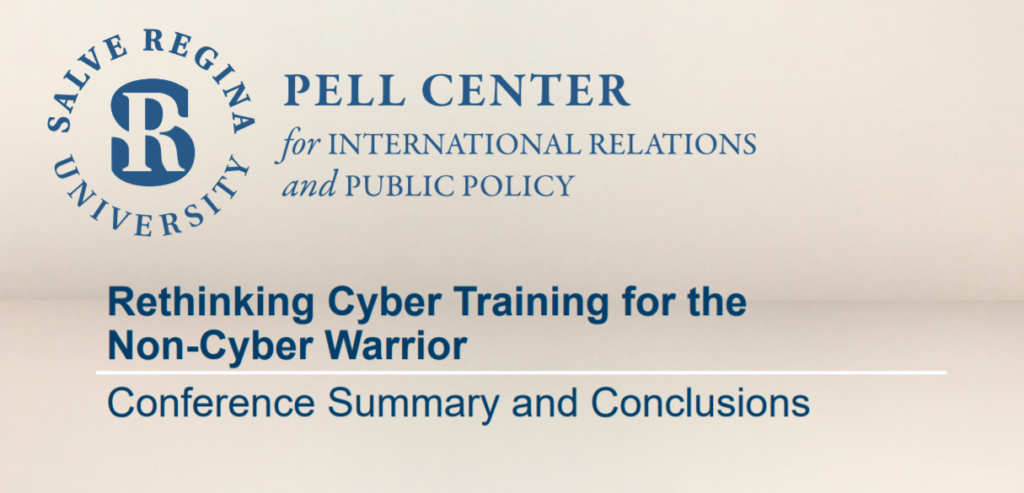Rethinking Cyber Training for the Non-Cyber Warrior: Conference Summary and Conclusions
NEWPORT R.I. – Today the Pell Center released the summary and conclusions from the “Victory Over and Across Domains: Cyber Training for the Non-Cyber Warrior” conference held on September 6-7, 2018 at Salve Regina University. The conference convened an interdisciplinary group of experts from the United States, Australia, France, and Canada to discuss how best to train the non-cyber warfighter to fight in— and through—an increasingly contested and complex battlespace saturated by adversary cyber operations.
Participants hailed from academia, the military services, the cyber and defense industries, government, and the defense policy community. The conference was held under Chatham House Rule to encourage frank discussions among participants. It sought to address three pressing questions:
- How should the military train to fight through a contested battlespace?
- What unique challenges exist when trying to integrate cyber operations with traditional kinetic operations?
- How can the military and the defense industry best bridge the gap between today’s training technologies and future service needs?
The intimate interdisciplinary forum provided by Salve Regina University’s Pell Center provided a unique opportunity to address some of the more challenging questions tied to military training, future war, and readiness. Jennifer McArdle, Assistant Professor at Salve Regina University and the conference organizer, stated, “The conference topic could not have been timelier. US competitors and potential adversaries will use cyber operations against US and allied military platforms and systems. All warfighters, not just our cyber mission forces, must be trained to fight in that environment.”
The conference was generously supported by CAE, a leading defense training company. “Cyber events around the world are increasing in their frequency and intensity,” said Gene Colabatistto, CAE’s Group President, Defense & Security. “Training our military forces to recognize and counter these events must become a key part of the military’s training syllabus. We anticipate that synthetic environments will play a key role in this training, which is why CAE is continually investing in internal research and development, including new products, so our virtual environments are more immersive and realistic.”
“The Pell Center exists to bring together people from a multitude of perspectives, including academia, industry, and the military, to solve big challenges,” said Jim Ludes, Vice President for Public Research and Initiatives at Salve Regina University. “For the men and women of the U.S. and allied militaries, that includes thinking critically about how technologies best meet the needs of the warfighter. We were delighted to support this kind of deliberation.”
Read the full conference summary: “Rethinking Cyber Training for the Non-Cyber Warrior”

